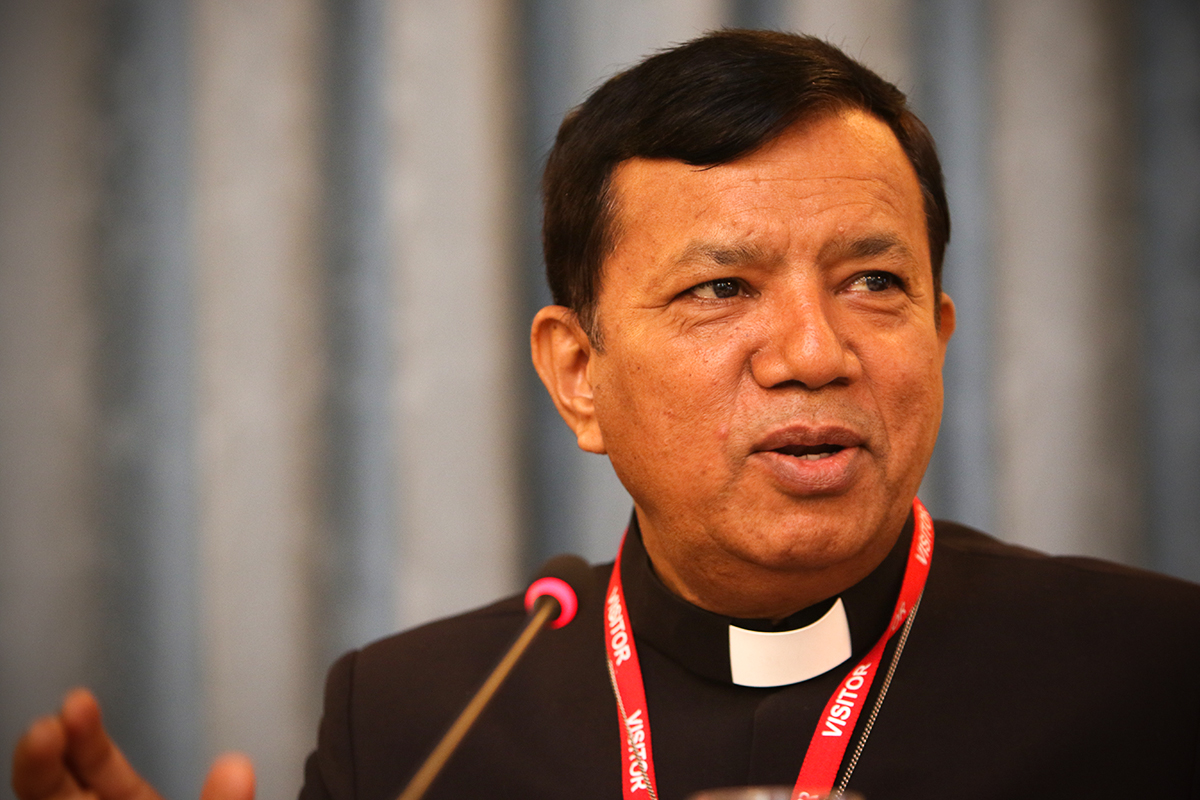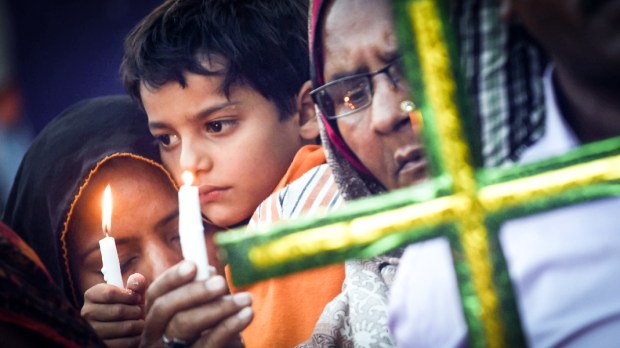Interfaith dialogue and the strengthening of young Christians in their own faith are two attempts being undertaken to reverse the effects of sectarianism in Pakistani society, said a bishop from Lahore at the end of a visit to New York and Washington, D.C.
Archbishop Sebastian Shaw, O.F.M., archbishop of Lahore in the eastern part of Pakistan, said that Christians and Muslims lived in peace in the country until the 1980s, when a national leader began introducing laws that led to divisiveness.

“Society became compartmentalized based on religion,” said Archbishop Shaw.
One of those laws, which provides for punishment of anyone convicted of “blasphemy” against Islam, has been the cause of much suffering in recent years. In particular, a woman in her 50s named Asia Bibi, accused of insulting the Prophet Muhammad, languishes in a Pakistani prison, awaiting a final resolution to an appeal of her death sentence.
Archbishop Shaw said the blasphemy law is often misused by those who have ulterior motives, such as carrying out revenge or getting someone’s property, and that no one has ever been able to offer solid proof that a Christian in Pakistan has actually blasphemed Islam.
“Usually, Christians don’t have a Koran in their homes,” the archbishop said in an interview Monday. “Plus, living in an environment where society is very pluralistic, people respect the book of people of other faiths. As far as I understand, all people who are alleged with blasphemy law, there is no proof that anyone insulted or burned the Koran. So it’s just to put people into difficulties, or there could be other issues and motives.”
Unfortunately, mob rule often takes over in such cases. Huge crowds of people swarm down on someone accused of blasphemy, and the authorities are unable to control the situation. When a Catholic couple in Lahore were accused of blasphemy in 2014, the mob grew to more than 4,000 people. The couple were forced into a kiln and burned alive.
The divisions caused by the 1980s-era blasphemy law got worse after the September 11, 2001 terrorist attacks on New York and Washington, D.C., Archbishop Shaw said, saying people in Pakistan blamed Christians and suggested that they are allies of the United States or the west in general. “So in this way some problems started, and some terrorist groups attacked our churches, schools and other institutions,” he said.
“Right after 9/11 we thought it would be good to have some forum where we can talk with others,” the archbishop continued. “We brought many people to the table: Hindus, Muslims, scholars and imams. We learned from them and they learned from us, how to make a peaceful society.”
Before the dialogue could get underway, however, some partners had to feel reassured that the initiative was not part of a “Western agenda” or a way to convert people.
“Now they realize it’s not to convert people, it’s just to make Pakistani society better, where people can live and understand, because if we live in isolation we can make our own opinion, our own judgement,” he said.
At the same time, he felt that Christians needed to be better formed in their faith and strengthened in their resolve to live as Christians within Pakistan. With the help of a grant from international Catholic charity Aid to the Church in Need, Archbishop Shaw oversaw a project to translate the Catechism of the Catholic Church into Urdu, and also published a book to better explain the Christian faith. He led efforts to establish Christian family life commissions and proliferate Sunday schools for young people and Bible studies for adults, and spoke out to encourage people to stay in the country, rather than seek to emigrate.
“You are born in Pakistan,” he would tell young people at gatherings. “It means we have to rediscover the purpose of our being in Pakistan. You are born in hard reality. We should not be afraid, we have witnessed the risen Lord. Maybe you can do what another person cannot do, and that is why you are here.”
Aid to the Church in Need sponsored his American visit, which included his participation in a symposium on worldwide persecution of Christians April 20 at the National Press Club in Washington. The symposium, sponsored by the Under Caesar’s Sword project of the University of Notre Dame, presented a major report on Christian responses to persecution.

